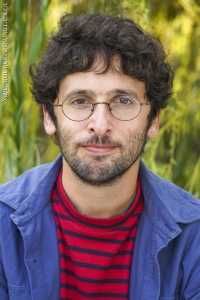 Dr. Ray Schrire
Dr. Ray Schrire
Areas of specialization:
History of Science and Scholarship, History of the Book and Reading, Renaissance and Early Modern Cultural and Intellectual History, Cognitive History
Areas of competence:
I am a historian of the Renaissance and early modern Europe, focusing on book history and history of science (although I often study what most historians would not consider to be books, or sciences). My research shifts between delving into the work of especially talented scientists and scholars and digging up the messy underbelly of intellectual practice.
My dissertation Learning to Think like Shakespeare and Locke explores the cognitive implications of humanist grammar school education from c. 1450 to 1700. Studying hundreds of manuscript grammars, printed textbooks, and marginal annotations, and fusing models from cognitive science with methods of book history, I demonstrate how new technologies (namely, paper and print) and new pedagogies reoriented the ways English schoolboys were trained to think while learning Latin.
My current project, How to Do Things with Numbers in Early Modern England, turns from literacy to numeracy. It positions everyday arithmetical practices in a time of pivotal developments in the theory of mathematics on the one hand, and a growing demand for practical calculations on the other. Accounting for many discrepancies between mathematical theory and practice, this project juxtaposes treatises and textbooks written by leading mathematicians across Europe with notebooks, erasable writing surfaces, accounting books, reckoning tools, and scrap paper of household accountants, land surveyors, shopkeepers, and merchants.
Related to these two projects, I am currently completing a joint book project with Dror Wahrman that traces the surprising metamorphosis of one eighteenth-century lady, sitting with her groceries and a few books. Following this image across different media along her journey from Sweden to France, then to England, and Germany, our book ties together issues such as global trade, women’s education, miniatures, and the meaning of an artistic original in an age of mass reproduction.
I have received my PhD in history from the Hebrew University of Jerusalem as a Rotenstreich Doctoral Fellow. While working on my dissertation, I spent two years as a Visiting Student Researcher at UC Berkeley, and many months digging out libraries in the UK, US, Italy, and more recently, also in the Netherlands. I am currently a Polonsky Postdoctoral Fellow at the Van Leer Jerusalem Institute.
Publications:
“’Learned Without Book’: English Grammar Schools and the Place of Textbooks in Early Modern Education,” The Sixteenth Century Journal (forthcoming)
“St. Paul’s Schoolroom: Paying Attention in Erasmus’s Grammar School,” Spaces of Making and Thinking: Environments of Creative Labor in the Early Modern Period, eds. Colin Murray, Sophie Pitman, and Tianna Helena Uchacz (New York: Bard, forthcoming Fall 2020)



